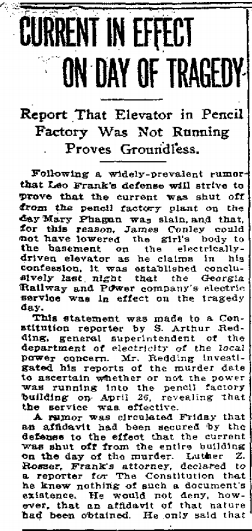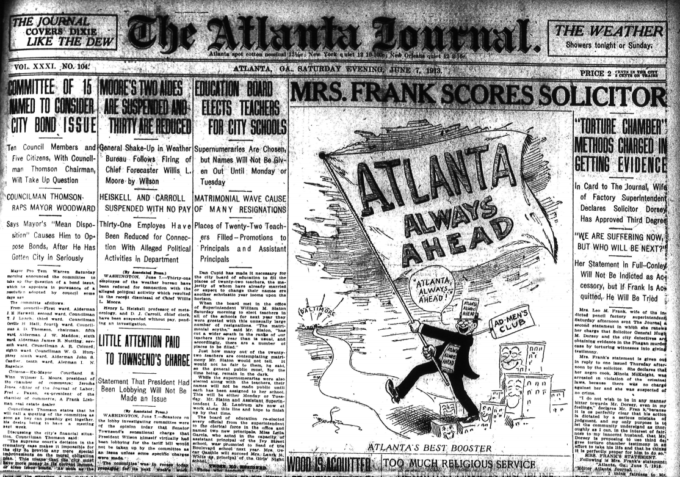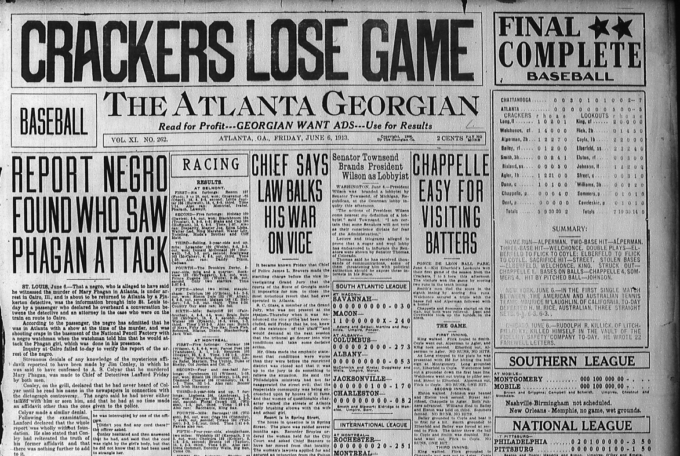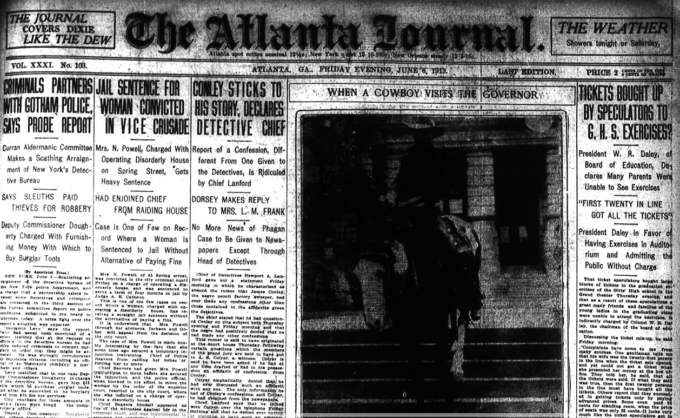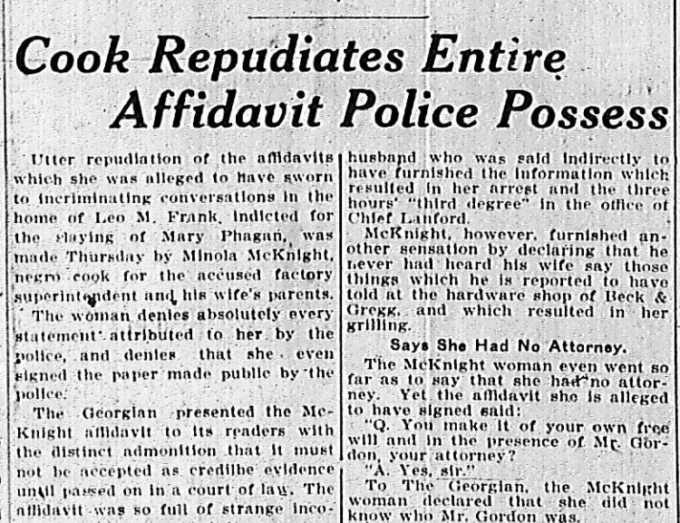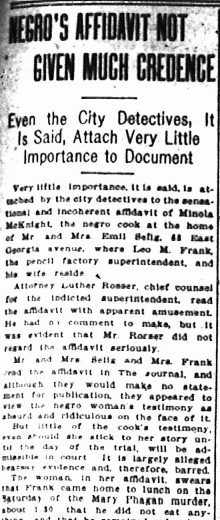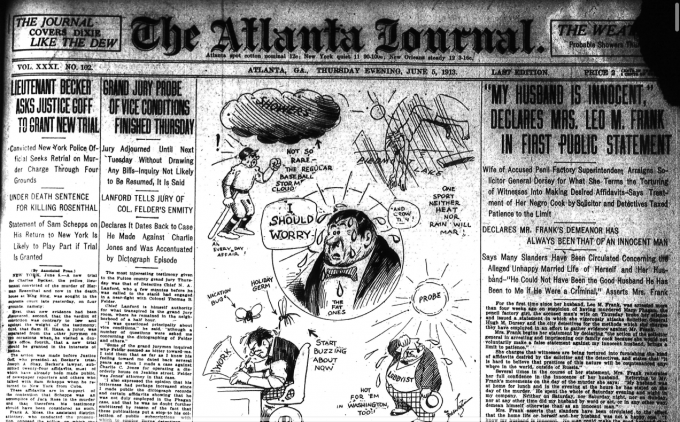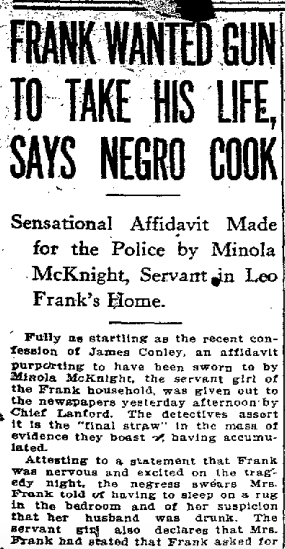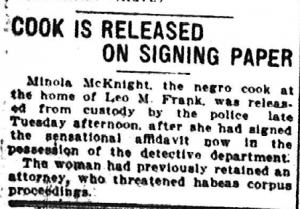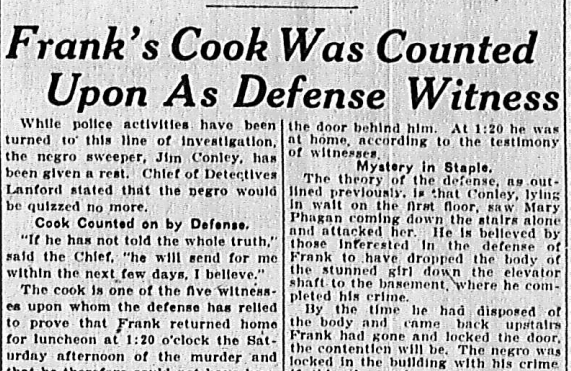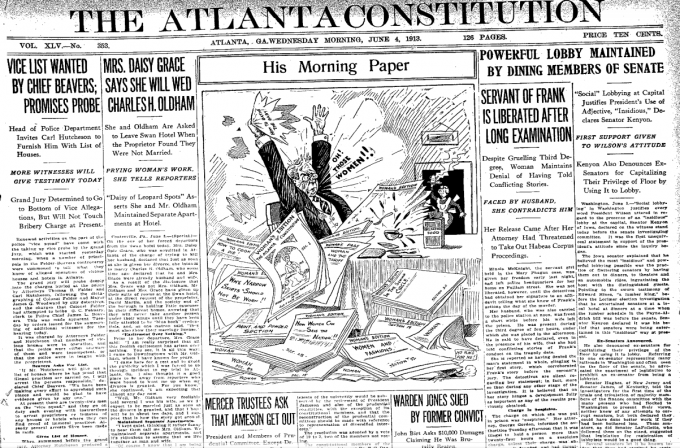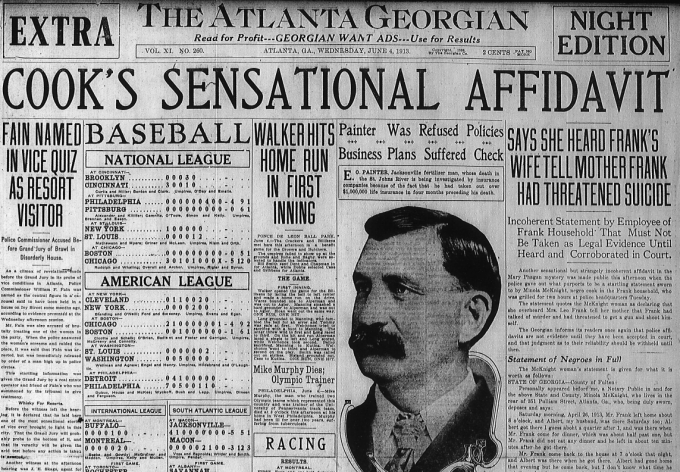Another in our series of new transcriptions of contemporary articles on the Leo Frank case.
Atlanta Constitution
August 21st, 1913
John Starnes, prosecutor of Leo Frank, was put up to tell about the Minola McKnight affidavit.
“Did you Investigate the scuttle hole around the elevator? was Dorsey’s first question.
An objection by the defense was overruled.
“See any blood spots there?
“No.”
“Now, tell the jury about the Minola McKnight affidavit.”
Continue Reading →



 Another in
Another in  Another in
Another in 
